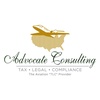Understanding Jet Taxation
In the high-flying world of private jets, there's more to consider than just the luxurious cabins and unparalleled convenience. Jet owners and operators are also navigating the intricacies of jet taxation. Jet tax is a complex terrain that encompasses various aspects of ownership, operation, and taxation that are unique to private jets. In this in-depth article, we will unravel the complexities of jet tax, exploring its significance, key considerations, and how it impacts the world of private aviation. So, fasten your seatbelts as we embark on a journey into the world of jet taxation.
Chapter I: The Foundations of Jet Taxation
Grounding Taxation Principles
Before we delve into the specifics of jet taxation, let's establish a solid foundation by understanding some fundamental taxation principles:
- Ownership Taxation
Jet taxation primarily revolves around ownership. The tax liabilities and obligations associated with owning a jet can vary widely based on factors such as location, usage, and ownership structure.
- International Variability
Jet tax can differ significantly from one country to another, requiring jet owners to navigate a complex web of international regulations and agreements.
Chapter II: Types of Jet Taxation
Taxing Aspects of Jet Ownership
Jet taxation involves various elements, each with its own implications for jet owners and operators:
- Acquisition Tax
When purchasing a jet, buyers may be subject to acquisition taxes, which can be substantial depending on the jurisdiction.
- Operating Taxes
Owning and operating a jet often entails ongoing taxes, such as property tax or personal property tax, depending on the jurisdiction in which the jet is based.
Chapter III: Depreciation and Deductions
Optimizing Financial Efficiency
Jet owners can leverage depreciation and deductions to manage their tax liability and maximize financial benefits:
- MACRS Depreciation
The Modified Accelerated Cost Recovery System (MACRS) allows jet owners to depreciate their aircraft over a specified period, typically five years, providing valuable tax benefits.
- Expenses and Deductions
Jet owners can deduct various expenses related to jet operation, including maintenance, fuel, and crew salaries, to reduce their taxable income.
Chapter IV: Tax Planning and Compliance
Navigating the Tax Skies
Efficient tax planning and compliance are crucial for jet owners to avoid legal complications and optimize financial efficiency:
- Ownership Structure
Jet owners must carefully consider their ownership structure, whether it's through an individual, corporation, or trust, as this can significantly impact tax obligations.
- Tax Professionals
Engaging tax professionals with expertise in aviation taxation is essential for ensuring compliance and maximizing tax benefits.
Why Jet Tax Matters
Unlocking Financial Benefits
Jet tax is more than just a financial obligation; it's an opportunity for jet owners to optimize their financial efficiency and unlock significant benefits:
- Cost Management
Efficient jet tax management allows owners to control costs associated with jet ownership, making it a more financially viable endeavor.
- Legal Compliance
Adherence to jet tax regulations ensures that jet owners remain in compliance with tax authorities, reducing the risk of penalties and legal issues.
- Financial Optimization
Through strategic tax planning and compliance, jet owners can maximize their financial benefits, enabling them to reinvest in their jet or other financial goals.
Challenges in the World of Jet Taxation
Navigating Tax Complexities
While jet tax offers substantial advantages, it comes with its own set of challenges:
- International Considerations
For jet owners who operate internationally, tax regulations can become exceedingly complex due to differing tax systems and international agreements.
- Evolving Regulations
Tax laws are subject to change, and staying updated on tax law amendments is crucial for compliance.
- Ownership Structure
Choosing the right ownership structure for tax optimization requires careful consideration and expert advice.
In Conclusion: Soaring Financially with Jet Tax
Jet tax is the compass that guides jet owners and operators through the complex financial skies of private aviation. By understanding ownership taxation, leveraging depreciation and deductions, and adhering to tax planning and compliance strategies, jet owners can optimize their financial efficiency and unlock significant benefits. As the world of private aviation continues to evolve, jet tax remains indispensable in ensuring that jet ownership is not only luxurious but also financially savvy for those who take to the skies in style.


No comments yet